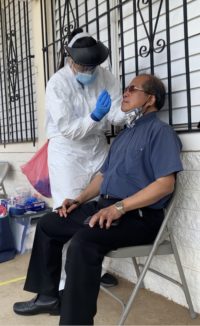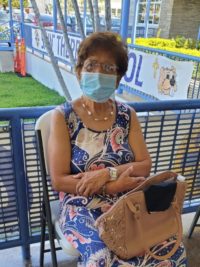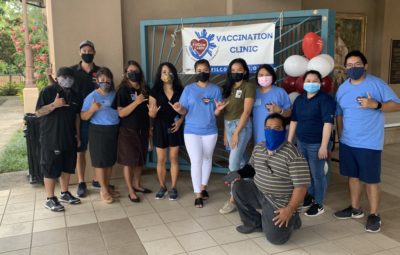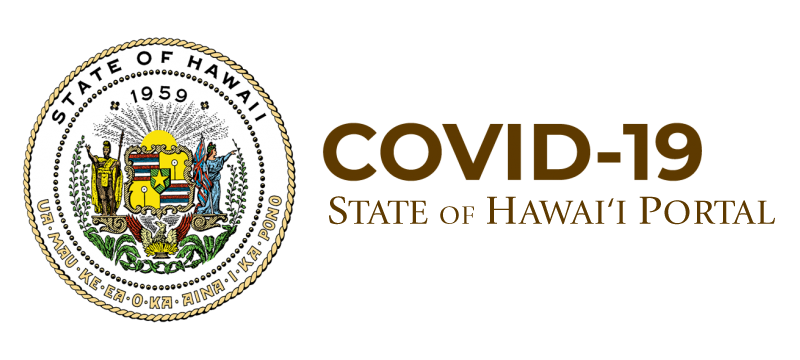The devastating effects of the pandemic have sometimes brought out the best in people by encouraging them to create new partnerships and find solutions to care for those in need. Hawai‘i’s Filipino community has done that by serving as a model of collaboration and mobilization.
The pandemic revealed significant health disparities in our Aloha State. Filipinos, which make up about 16% of Hawai‘i’s total population, were being disproportionately affected by COVID-19 last year. In November 2020, more than 20% of the COVID-19 cases were affecting Filipinos — the ethnic group experiencing the second highest rate of COVID-19 cases in the state behind Pacific Islanders.
Although the Hawai‘i Department of Health findings were disheartening, the Filipino community immediately took action. Over 100 volunteers rapidly mobilized to provide more education in Tagalog and Ilokano and address any cultural, technological or other barriers. It was a testament to the power of collaboration within Hawai‘i’s Filipino community.

Fr. Edgar Brillantes receives a COVID-19 test at Our Lady of the Mount Church in Kahili.
Bringing the Filipino Community Together
FilCom CARES, a new project of the Filipino Community Center created during the pandemic, served as a hub to draw attention to the need to conduct testing, contact tracing, and prepare for vaccination clinics. FilCom CARES filled an important community need because until then there had been no coordinated COVID-19 outreach effort specifically for the Filipino community, a reality that loomed over the members of the Pilipinos Underrepresented Scholars Organization (PUSO) at their meeting.
Dr. Agnes Malate, Director of Health Careers Opportunity Program in the University of Hawai‘i at Mānoa’s Student Equity, Excellence, and Diversity (SEED) office was in the center of the action as one of the volunteers of the FilCom CARES project.
She and other UH faculty stepped forward to volunteer without hesitation, including many long known for their advocacy efforts in community such as Dr. Amy Agbayani, assistant vice chancellor for student diversity emerita; Dr. Clementina Ceria-Ulep, interim dean of the UH Nancy Atmospera-Walch School of Nursing and Dental Hygiene; and Dr. May Rose Dela Cruz, assistant researcher, Office of Public Health Studies. Faculty, staff, and students from the law school, Center for Philippine Studies, Philippine language programs, and Student Diversity and Inclusion at the UH also joined in the efforts.
“We asked ourselves the question, ‘if not us, then who?’” Malate said, realizing their duty to address the issue.
Mobilizing Behind an Urgent Issue
Malate and Agbayani had been volunteers on the Filipino Complete Count Committee, which was focused on educating the Filipino community about the need to complete their U.S. Census form. Based on past census figures, the Filipino community was under-counted because of low completion rates and this affects federal funding allocations for Hawai‘i. The committee was determined to get to this hard-to-reach population, but when Governor David Ige issued the state’s first stay-at-home order in March 2020, the committee members quickly mobilized and redirected their energy and knew they had to also address the urgent need of the pandemic. Their efforts started with a virtual radiothon followed by social media outreach and tsismisans, a talk story series.
With Coronavirus Aid, Relief, and Economic Security Act (CARES) Act funding, FilCom CARES was able to successfully unite the efforts of Filipino organizations with varying levels of capacity, building on the census committee’s model. Their collective efforts made a major impact.
Partnering with Catholic Churches
The strategy of FilCom CARES was to simply go to where people already gather. To reach the Filipino community, that was an easy answer: FilCom Center and Catholic churches.

Norma Montero waits to receive her vaccination at Co-Cathedral of St. Theresa in Honolulu.
With support from the Diocesan Congress of Filipino Clubs and Filipino Catholic Clubs on O‘ahu and Kihei, Maui, as well as the Knights of Rizal-Hawai‘i Chapter, the FilCom CARES volunteer corps went to work without delay, setting up COVID-19 testing and vaccination clinics with the support of Kaiser Permanente, Kalihi-Palama Health Center, Wahiawa Health, Project Vision Hawai‘i, Premier Medical Group Hawai‘i, and the UH Tropical Medicine Clinical Laboratory at the FilCom Center.
There was also support from a number of churches, including the Our Lady of Perpetual Help in Ewa Beach, Sacred Heart in Waianae, Our Lady of Sorrows in Wahiawa, St. Roch in Kahuku, St. Michael in Waialua, St. Joseph in Waipahu, and Co-Cathedral of St. Theresa in Liliha, Our Lady of the Mount, and St. Anthony, all in Honolulu.
“We have been a part of this parish for several years before moving to the West side and when we heard they were offering it in (Co-Cathedral of) St. Theresa and in a Catholic setting through FilCom CARES, my husband and I were excited to come for nostalgia and ease the anxiety of getting the vaccination,” said Norma Montero. “Through prayer and the help of our daughter, it was an easy process and we knew we were in good hands.”
Malate said new partnerships were formed along the way. Pear Suite, Inc, a nonprofit organization, was valuable in facilitating sign-ups for the vaccinations. Ethnic Education Hawai‘i, another nonprofit with expertise in ethnic language media, was instrumental in reaching immigrants and those with limited English proficiency (LEP) through the FilCom CARES radiothons and weekly radio programs. The Philippine Medical Association of Hawai‘i and the Philippine Consulate General in Honolulu are two of the strongest supporters of FilCom CARES since its formation.

FilCom CARES team with Department of Health and iHeartMedia staff at a vaccination and testing event at the FilCom Center in Waipahu. Standing Left to Right: Cliff Clifton, Promotions Assistant, iHeartMedia; Chris Mills, Sales Manager, iHeartMedia; Agnes Malate, Director of Health Careers Opportunity Program in the University of Hawai‘i at Mānoa’s Student Equity, Excellence, and Diversity (SEED) office; May Rose Dela Cruz; Clemen Montero; Richalle Patague; Jayden Asensio, Public Health Educator with the Department of Health’s Disease Outbreak Control Division; Barbara Saguid; Michelle Pelino; and Loreto Coloma. Kneeling: Alan Petalver
The response to these volunteer efforts were phenomenal, with many signing up to fill timeslots quickly and requiring others to be placed on wait lists for subsequent clinics.
High school students also saw the value of vaccinations for their family members because of the outreach efforts of FilCom CARES.
“The people at FilCom made my COVID vaccine experience quick and easy,” said Jordan Petalver, a Waipahu High School sophomore.
Although there may have been some anxiety about the vaccinations, even among teens, those were alleviated by the educational efforts of FilCom Cares.
Petalver’s cousin, Sunshine Petalver, a Waipahu High junior, said, “My COVID vaccine experience was OK and I felt safe.”
Current data shows that Filipinos still make up about 20% of the total number of COVID-19 cases in the state and that hospitalizations and death rates among Filipinos have not changed significantly since late last year.
Creating Systemic Change
Filipinos now have a working model on how to effectively tackle future challenges and are ready to address systemic change to ensure there is health equity for all residents in Hawai‘i. On each of the islands, they have shown they are responsive and capable of rising to new challenges. People can do amazing things when they work together, and the Filipino community in Hawai‘i has proven this is true.
Denby Fawcett: Why So Few People Are Getting The New Covid Shot
Experts are worried about the lack of interest as people are still suffering from the virus and long Covid. By Denby Fawcett Original article on Civil Beat, November 7, 2023 I keep a card in my [...]
Federal Public Health Emergency (PHE) for COVID-19 ends on May 11, 2023
HONOLULU, HI –The federal Public Health Emergency (PHE) for COVID-19, declared under Section 319 of the Public Health Service Act, will expire at the end of the day on May 11, 2023. As the PHE [...]
Seniors now eligible for additional COVID-19 bivalent booster dose, COVID vaccine recommendations simplified
HONOLULU, HI – The Hawai‘i Department of Health (DOH) supports the latest recommendations announced yesterday by the Centers for Disease Control and Prevention (CDC), allowing an additional dose of the bivalent booster against the virus [...]
Hawai‘i COVID-19 hospitalizations on the rise
HONOLULU, HI – The Hawai‘i Department of Health (DOH) reports a rise in the rate of COVID-19 hospitalizations. The number of total positive COVID-19 hospitalizations has increased over the past week (3/26 – 4/4) from [...]
Wastewater Samples Show Higher COVID Concentrations & New Subvariant
The Hawai‘i State Department of Health’s most recent Wastewater Surveillance Report documents two significant developments about COVID-19 in Hawai‛i. Higher concentrations of the virus that causes COVID-19 The arrival of the XBB.1.5 subvariant Higher concentrations [...]
Bivalent boosters for keiki as young as 6 months
Updated COVID-19 bivalent boosters are now available in all counties for keiki as young as six months of age. The U.S. Food and Drug Administration (FDA) amended the emergency use authorization for the bivalent boosters [...]
